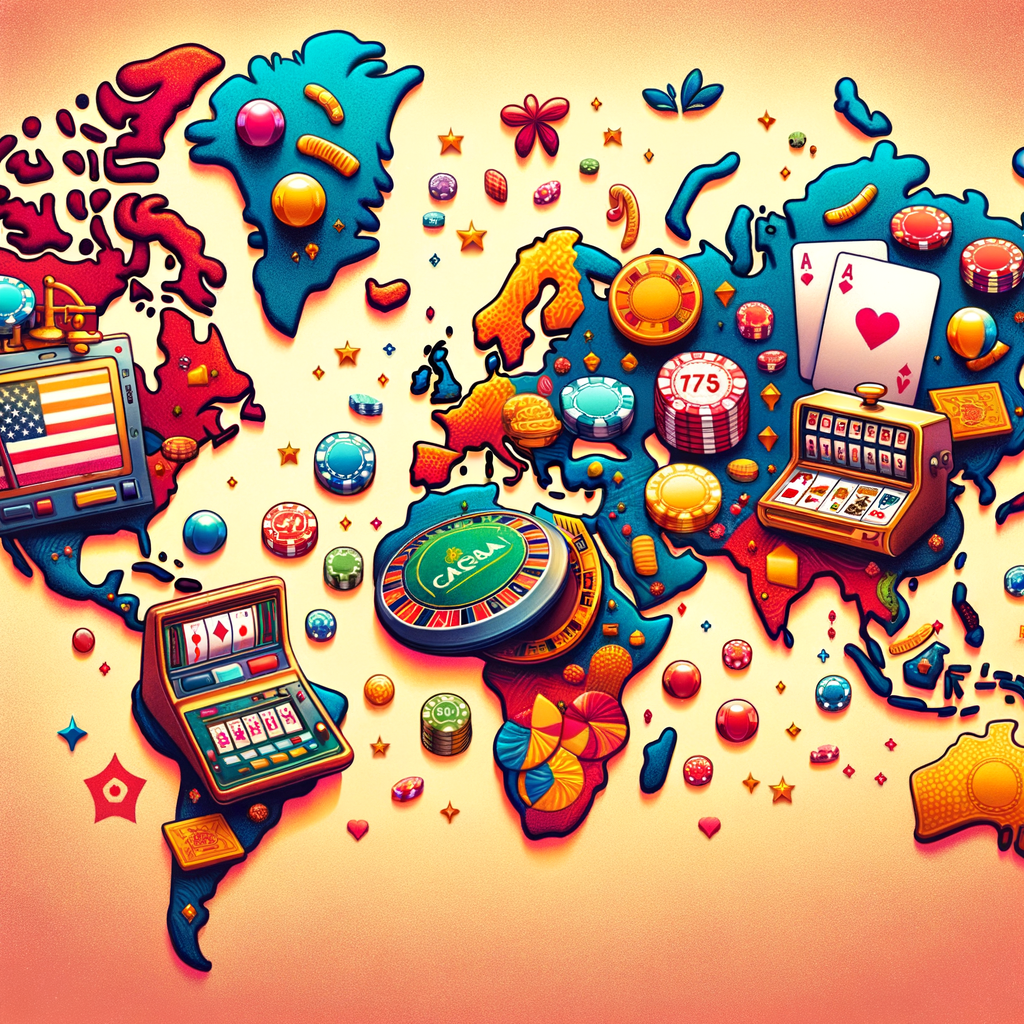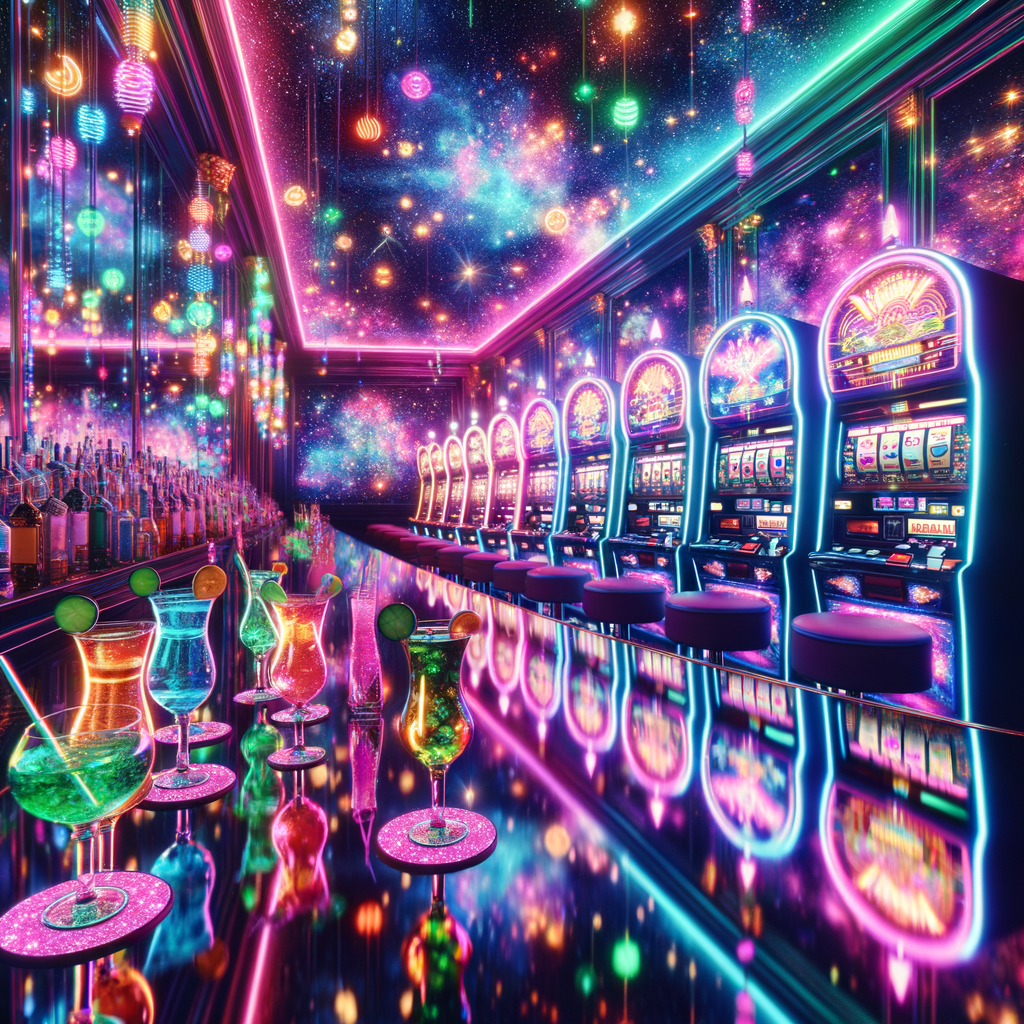Understanding the Concept of Virtual Reality in Gambling
Virtual Reality (VR) has emerged as one of the most groundbreaking technologies of the 21st century, creating immersive environments that transport users into alternate realities. In the context of gambling, VR casinos offer players an engaging experience that mimics the social and atmospheric elements of traditional casinos. Players can use VR headsets to navigate virtual spaces, interact with other players, and engage in various games, all from the comfort of their homes.
The appeal of VR casinos lies in their ability to replicate the thrill of a physical gambling environment. Users can walk through virtual casino floors, play at poker tables, spin slots, and even interact with dealers and other players via avatars. This blend of social interaction and gaming creates a more holistic gambling experience, fostering a sense of presence and community that is often missing in online gambling platforms.
As VR technology continues to develop, the potential for more sophisticated and immersive gaming experiences increases. Developers are working on enhancing graphics, haptic feedback, and sound design to create an even more lifelike atmosphere. This evolution is setting the stage for VR casinos to become a significant player in the gambling industry, attracting both seasoned gamblers and newcomers alike.
Furthermore, the integration of VR casinos into the broader landscape of online gaming could redefine how players perceive and interact with gambling platforms. The shift from traditional methods to immersive environments is beginning to change the narrative of what online gambling can be, making it a compelling option for tech-savvy consumers.
The Technological Advancements Fueling VR Casinos
The rise of VR casinos is significantly attributed to several technological advancements. High-performance VR headsets, such as the Oculus Rift, HTC Vive, and PlayStation VR, provide users with the capability to experience immersive environments. These devices feature advanced motion tracking and spatial audio technology, creating a more realistic simulation that enhances user engagement.
Additionally, improvements in internet connectivity, particularly the advent of 5G networks, have made it feasible to stream high-quality VR content with minimal latency. This level of connectivity allows for seamless interactions within virtual environments, ensuring that users have a smooth and enjoyable experience without frustrating interruptions.
Game development tools and engines, such as Unity and Unreal Engine, have also played a crucial role in the evolution of VR casinos. These platforms enable developers to create visually appealing and highly interactive environments, making it easier to design intricate games that captivate players. As more developers enter the VR space, the variety and quality of casino games are likely to expand, further attracting diverse audiences.
Finally, advancements in artificial intelligence (AI) are being leveraged to enhance the gaming experience in VR casinos. AI can be employed to create realistic non-player characters (NPCs) that interact with players, enhancing the social aspect of gambling. By analyzing player behavior, AI can also optimize game offerings and provide personalized experiences, making VR casinos more appealing to individual players.
Exploring the Benefits of VR Casinos for Players
One of the most significant benefits of VR casinos is the immersive experience they offer. Players can enjoy a more engaging atmosphere compared to traditional online casinos, where interaction is often limited to chat rooms or forums. In VR, players can feel as though they are physically present in the casino space, allowing for a more authentic gambling experience.
Another advantage is the convenience and accessibility of VR casinos. Players can enjoy their favorite games without the need to travel to a physical location, saving time and money. This accessibility is particularly appealing to those who may not have nearby casinos or who prefer to gamble in a more private setting.
Additionally, VR casinos often incorporate innovative features that enhance gameplay. For example, players can customize their avatars, choose personalized gaming environments, and participate in unique multiplayer experiences. These options not only attract players but also foster a sense of ownership and community within the virtual space.
Lastly, VR casinos can provide a safer gambling environment. With the ability to set limits and track player behavior, VR platforms can help promote responsible gambling by encouraging players to engage in self-regulation. This approach contrasts with traditional gambling environments, where the ambiance can sometimes lead to impulsive betting decisions.
The Challenges Facing the VR Casino Industry Today
Despite the promising outlook for VR casinos, several challenges must be addressed for them to fully realize their potential. One significant barrier is the high cost of VR equipment. While prices have been decreasing, many users still find VR headsets and accessories expensive, which may limit the audience willing to invest in the technology.
Additionally, the development of engaging and immersive content is a critical hurdle. Creating high-quality games that can leverage the full capabilities of VR technology requires substantial investment and expertise. Developers need to ensure that their offerings are not only visually appealing but also enjoyable and user-friendly to compete with existing online gambling platforms.
Another challenge is the regulatory landscape surrounding online gambling. Many jurisdictions have strict regulations governing casinos, and the integration of VR technology complicates matters further. Developers must navigate complex legal frameworks, which can vary significantly from one region to another, in order to operate legally and safely in the market.
Finally, there are concerns around player safety and ethical gambling practices within virtual environments. As VR casinos grow in popularity, it is essential for operators to prioritize responsible gaming measures, ensuring that players have access to the tools and information necessary to gamble safely.
Comparing VR Casinos to Traditional Gambling Experiences
When comparing VR casinos to traditional gambling experiences, several distinct differences emerge. Traditional casinos offer a physical environment where players can engage in face-to-face interactions, which some may find more rewarding than digital interactions. In-person gambling experiences include elements like the sounds of slot machines, the aroma of food and drinks, and a vibrant social atmosphere that can be difficult to replicate in a virtual setting.
On the other hand, VR casinos provide a more personalized and customizable experience. Players can choose their gaming environments and avatars, allowing for a tailored experience that traditional casinos cannot match. This customization can help attract diverse audiences, including those who may feel intimidated by traditional casino settings.
Moreover, the convenience factor of VR casinos cannot be overstated. Players can indulge in their favorite games at any time, without the need to travel or adhere to opening hours. This flexibility is particularly appealing to individuals with busy lifestyles or those who prefer to gamble in the comfort of their own homes.
However, it is essential to consider that VR casinos are still in their infancy. As the technology continues to evolve, improvements in graphics, interactivity, and user experience will likely bridge some of the gaps that currently exist between VR and traditional gambling experiences. The competition between these two forms of gambling could result in innovations that enhance both industries.
Future Trends: What Lies Ahead for VR Gambling?
The future of VR gambling appears bright, with numerous trends poised to shape its development. One significant trend is the increasing integration of social features within VR casinos. As players seek community and interaction, developers are likely to create more social gaming experiences, including multiplayer games where users can engage and compete in real-time.
Additionally, the growth of esports and competitive gaming is influencing the gambling landscape. VR casinos may begin to incorporate elements of esports, allowing players to bet on tournaments or participate in gaming competitions. This crossover could attract a younger demographic to the gambling scene, diversifying the player base.
Another trend is the potential for blockchain technology to enhance the security and transparency of VR gambling. By incorporating blockchain, operators can provide players with secure transactions, fair gaming practices, and verifiable outcomes. This integration could significantly enhance trust in VR gambling platforms, attracting more players.
Finally, advancements in AI and machine learning will likely play a substantial role in the evolution of VR casinos. These technologies can be utilized to create personalized gaming experiences, optimize game offerings based on player preferences, and promote responsible gambling practices. As these technologies mature, they will fundamentally change how players interact with VR casinos.
| Aspect | VR Casinos | Traditional Casinos |
|---|---|---|
| Immersion | High (3D environments) | Moderate (physical presence) |
| Customization | Extensive (avatars & environments) | Limited (fixed spaces & games) |
| Accessibility | High (play from home) | Moderate (travel required) |
| Social Interaction | Virtual (digital avatars) | In-person (face-to-face) |
| Cost of Entry | High (equipment investment) | Variable (travel & entertainment costs) |
Q&A Section
Q: What equipment do I need to access VR casinos?
A: To access VR casinos, you typically need a VR headset (like the Oculus Rift or HTC Vive), a compatible gaming computer or console, and a stable internet connection.
Q: Are VR casinos safe to use?
A: Yes, VR casinos can be safe, provided they are operated by licensed and regulated companies. Players should ensure that the platform employs responsible gambling measures.
Q: Can I win real money at VR casinos?
A: Yes, many VR casinos offer real-money gambling options, similar to traditional online casinos. Ensure you choose a reputable platform that complies with local gambling regulations.
Q: Is VR gambling addictive?
A: Like all forms of gambling, VR gambling can be addictive. Users should gamble responsibly and utilize available tools to manage their gambling habits.
Q: Will VR casinos replace traditional casinos?
A: While VR casinos offer unique advantages, they are unlikely to fully replace traditional casinos. Instead, both forms may coexist, catering to different preferences and experiences among players.



